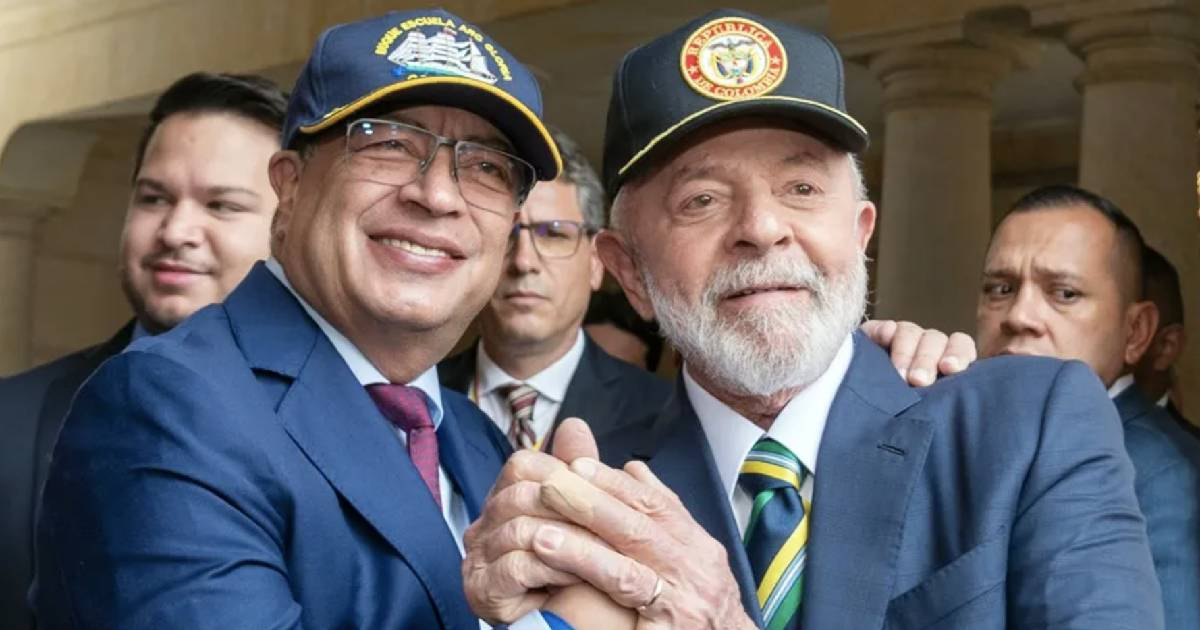The presidents of Brazil, Luiz Inácio Lula da Silva, and Colombia, Gustavo Petro, have expressed their concern over the lack of transparency in the recent presidential elections in Venezuela and urged the Venezuelan government to release detailed and verifiable election data to restore the credibility of the process.
During two days of phone conversations, the leaders discussed the situation in Venezuela and concluded that political normalization in the country can only be achieved through peaceful dialogue and the recognition of democratic diversity. Both leaders, along with Mexico, offered themselves as mediators in the Venezuelan crisis but have not recognized Nicolás Maduro as the elected president, despite the Supreme Court of Justice (TSJ) ratifying him as the winner without presenting evidence.
Lula da Silva and Petro called on all parties involved to avoid acts of violence and repression. Mexico's Andrés Manuel López Obrador distanced himself from these two countries a few days ago, stating that he would wait for the TSJ's ruling before taking a stance on the issue. As neighboring countries directly affected by Venezuela's instability, Brazil and Colombia remain active mediators and reiterate their willingness to facilitate understanding between the conflicting parties.
Commitments and Opposition to Sanctions
Additionally, they recalled the commitments made in the Barbados Agreements, which emphasize the need for transparency and dialogue between the Chavismo and the opposition. Both countries also expressed their opposition to continuing unilateral sanctions, which they argue contravene international law and mainly affect vulnerable populations in the sanctioned countries.
This statement comes at a critical time when international pressure on Venezuela has increased due to doubts about the integrity of the electoral process. Brazil and Colombia did not join the regional declaration, which includes the U.S. and eleven other countries, demanding the immediate publication of the records due to suspicions of massive electoral fraud.
Frequently Asked Questions on Brazil and Colombia's Stance on Venezuela
As the situation in Venezuela continues to unfold, many are left with questions regarding Brazil and Colombia's position and their implications. Here are some of the most relevant questions and answers to provide clarity on the matter.
Why are Brazil and Colombia concerned about the Venezuelan elections?
Brazil and Colombia are concerned due to the lack of transparency in the electoral process, which raises doubts about the legitimacy of the results and the democratic integrity of Venezuela.
What role do Brazil and Colombia want to play in Venezuela's political crisis?
Both countries have offered to act as mediators in the crisis, promoting peaceful dialogue and democratic recognition to help resolve the situation.
What are the Barbados Agreements?
The Barbados Agreements are commitments made to ensure transparency and dialogue between Chavismo and the opposition in Venezuela, aiming to foster a peaceful resolution to the political crisis.
Why did Brazil and Colombia not join the regional declaration with the U.S.?
Brazil and Colombia chose not to join the regional declaration because they preferred to wait for more concrete evidence and call for a transparent and verifiable electoral process rather than immediately alleging fraud.
